Helen Tope reviews Notorious, showing in our cinema until Wednesday 9 October.
1946 was a very good year for film. The Big Sleep, Gilda and It’s a Wonderful Life, the medium was most definitely experiencing a post-war high.
Among them sits Hitchcock’s dark thriller, Notorious. Set in Rio de Janeiro, Ingrid Bergman and Cary Grant join forces to defeat a group of Nazis. This may sound about as subtle as a Rita Hayworth hair toss, but Hitchcock’s film about post-war anxiety and patriotism runs far deeper than first impressions might suggest.
We meet Alicia Huberman (Bergman) as her German father is being sentenced for treason against America. Threatening the court with a Nazi uprising yet to come, her father is led away in disgrace.
Alicia is approached by government agent T.R Devlin (Grant) as she returns home to Florida. Hosting a small party, Alicia begins to drink heavily. Devlin, smart and elegant, sits quietly observing Huberman. Now very drunk indeed, she confronts him, demanding to know who he is.
Devlin remains evasive. Enjoying the challenge, Alicia suggests a midnight drive. We are, in Hitchcockian terms, now on familiar ground. A beautiful woman driving at high speed, with a nervous Cary Grant in the passenger seat. They are finally stopped by a policeman on a motorbike. Grant hands over his ID. The policeman apologises, and waves them on. Alicia finally learns that Devlin has been assigned to persuade her to assist the government in securing further arrests.
A friend of her father’s, Alexander Sebastian (Claude Rains) is living in Rio, and meeting regularly with a group of Nazi conspirators. Sebastian has long held feelings for Alicia. Her connections, her charm, make her the perfect person to infiltrate this group. Alicia at first resists, but Devlin plays her a secret recording of a previous argument with her father. Alicia’s motives are in no doubt – she is a loyal patriot, right down to the core.
We head to Rio – we get glamorous, tantalising snapshots of a city on the rise – and the game begins. Capturing Sebastian’s attention is easy. Now on the inside, Alicia acts the part of a society girlfriend. But she listens, observes and reports back. An incident over dinner sees a fuss made by one of Sebastian’s friends over the wine to be served. No, it is the right wine, assures Sebastian. But Huberman sees the connection – the bottles are not what they seem.
This is film-making not at slow burn, but Hitchcock putting the pedal to the floor. The performances are cool, calm and measured – but the action is full throttle. What Hitchcock delivers here is a definitive take on the spy thriller.
Following a famously-tense scene in Sebastian’s wine cellar, Alicia and Devlin uncover the secret of the wine bottles. Accidentally smashing one on the floor, Devlin collects the dark powder found inside the bottle. It is analysed and found to be metal ore, which can be used for weaponisation. The year of vintage on the bottles, 1934, hints at the group’s plan. The Reich revived, this time with a menace so large it threatens not only security, but life itself. Hitchcock makes it very easy for us – we should root for the spy.
A three-time Oscar winner, Ingrid Bergman’s role in Notorious gives us all the light and shade we would expect of a modern heroine. Torn between a patriotism that puts her own life in danger, and a flourishing affair with Devlin, Alicia is taking all the risks.
Bergman is in the driving seat; a metaphor made real by Hitchcock as she secures Sebastian’s trust, relaying information back to the government. The case hangs on her ability to disarm and persuade, and it turns out she’s rather good at it. Bergman’s character moves from boozy socialite to a spy so convincing, her target asks her to marry him.
When it comes to Hitchcock and his heroines, there is definitely a point to be made against him. The cool blonde; gorgeous, but not fully in control of what’s going on – has got Hitchcock into trouble over the years. This kind of characterisation hasn’t aged well, and shows up Hitchcock’s work as being a product of its time. While the stories and the technical prowess keep us watching, the question of sexual politics becomes more significant, the further we move away from mid-twentieth century mores.
With Notorious, you get the impression that on meeting Bergman, Hitchcock realised that she would require a role working at the sharp end of the narrative. Without Alicia, there is no story, no film. Hitchcock even reserves his best shots for her – despite sharing screen time with Hitchcock’s ultimate leading man.
Cary Grant is cast in the looser role of handsome, enigmatic gent. At the start of the film, we see just the back of Grant’s head. He does not move, he does not talk. An uninvited guest at Alicia’s party, she teases him, trying to provoke a response. Grant remains silent, until the camera pans round, and we see his face. It’s a hell of an introduction.
Hitchcock is just as guilty of fetishising his male stars, but in Notorious, Grant is allowed to present a fuller picture. Conflicted by the demands of his work, and the desire to protect Alicia, Devlin isn’t just a fashion plate for Hitchcock to hang his fantasies on. This is masculinity exposed. Grant’s character takes risks, but too many of them, putting Bergman’s character in grave danger. Devlin is an imperfect hero, again giving this 1946 film a very modern feel.
In contrast to the strong, silent archetype he presents at the beginning of the film, we learn to doubt Devlin, to the point where Alicia’s jeopardy feels all too real. Going down to the wine cellar and finding shards of broken glass, Sebastian discovers Alicia’s duplicity. On the advice of his wily mother (a great Leopoldine Konstantin), he does not expose her. Instead, they plan to kill her slowly, putting poison in her coffee. Put to bed, and her phone removed from the room, Alicia is left to die.
With this film, Hitchcock argues that victory is not won by men in suits, making all the right moves; the game is far more precarious than that. This is what gives Notorious its edge – the people we should trust, authorities, men with badges – are very much playing this case by ear. Alicia asks their opinion on whether she should marry Sebastian, but her downcast expression tells us that she has already made the decision for herself.
The old certainties are being stripped away. Against a post-war backdrop, concerns about groups like Sebastian’s would have been an anxiety all too familiar to Hitchcock’s audience. Peace, still fresh and new, was not a given.
In our own times, turbulence has become the regular state of play. Our own rules, the same certainties, are being shifted, albeit at a less radical pace. As we regard this film from a 21st century perspective, Notorious asks us what we would do to preserve the peace, rectify wrongs. The answer, then as now, is far from clear.
Helen Tope
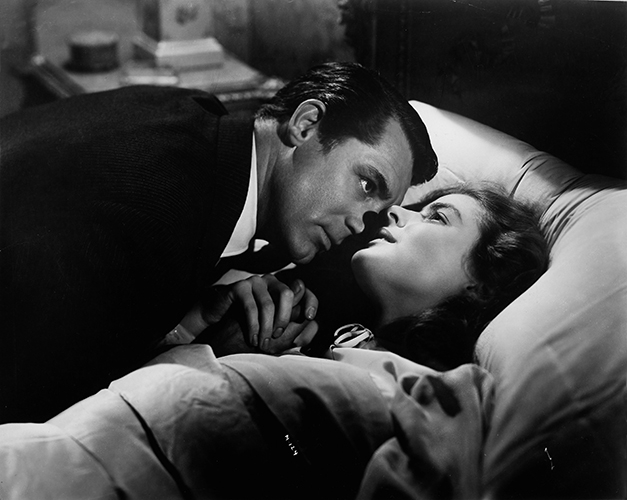
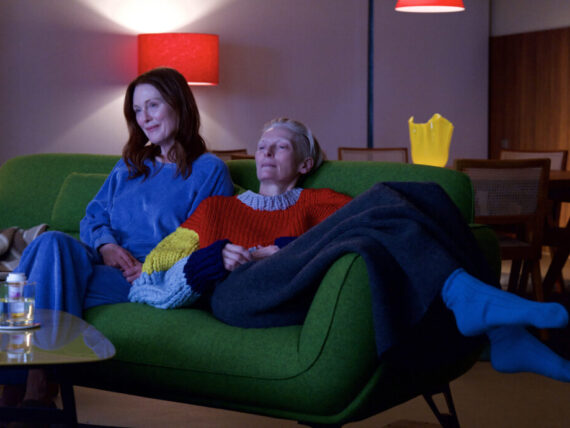

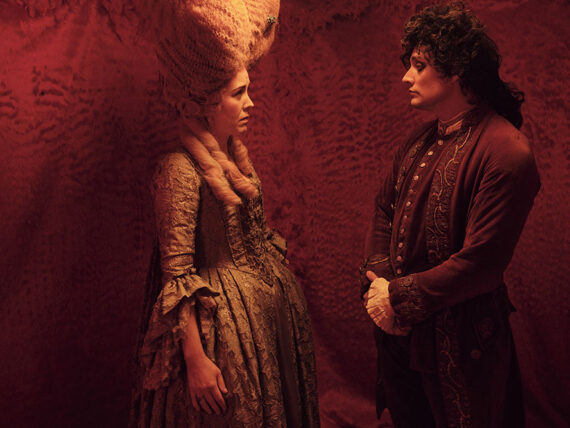
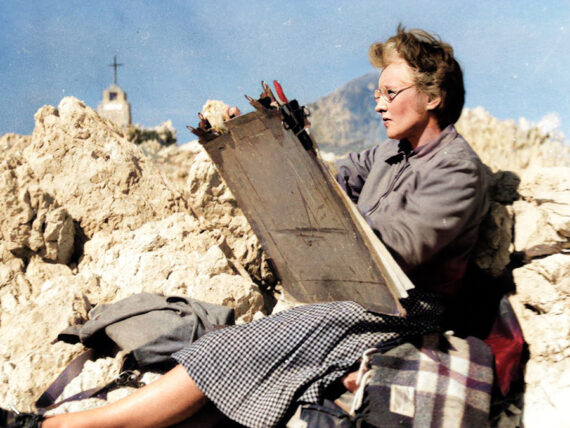


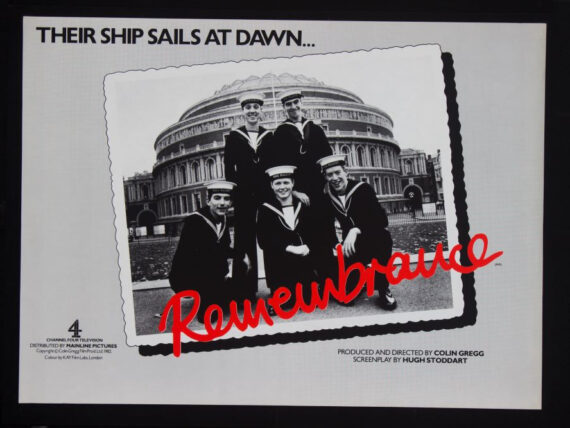

Comments
Comments are closed.